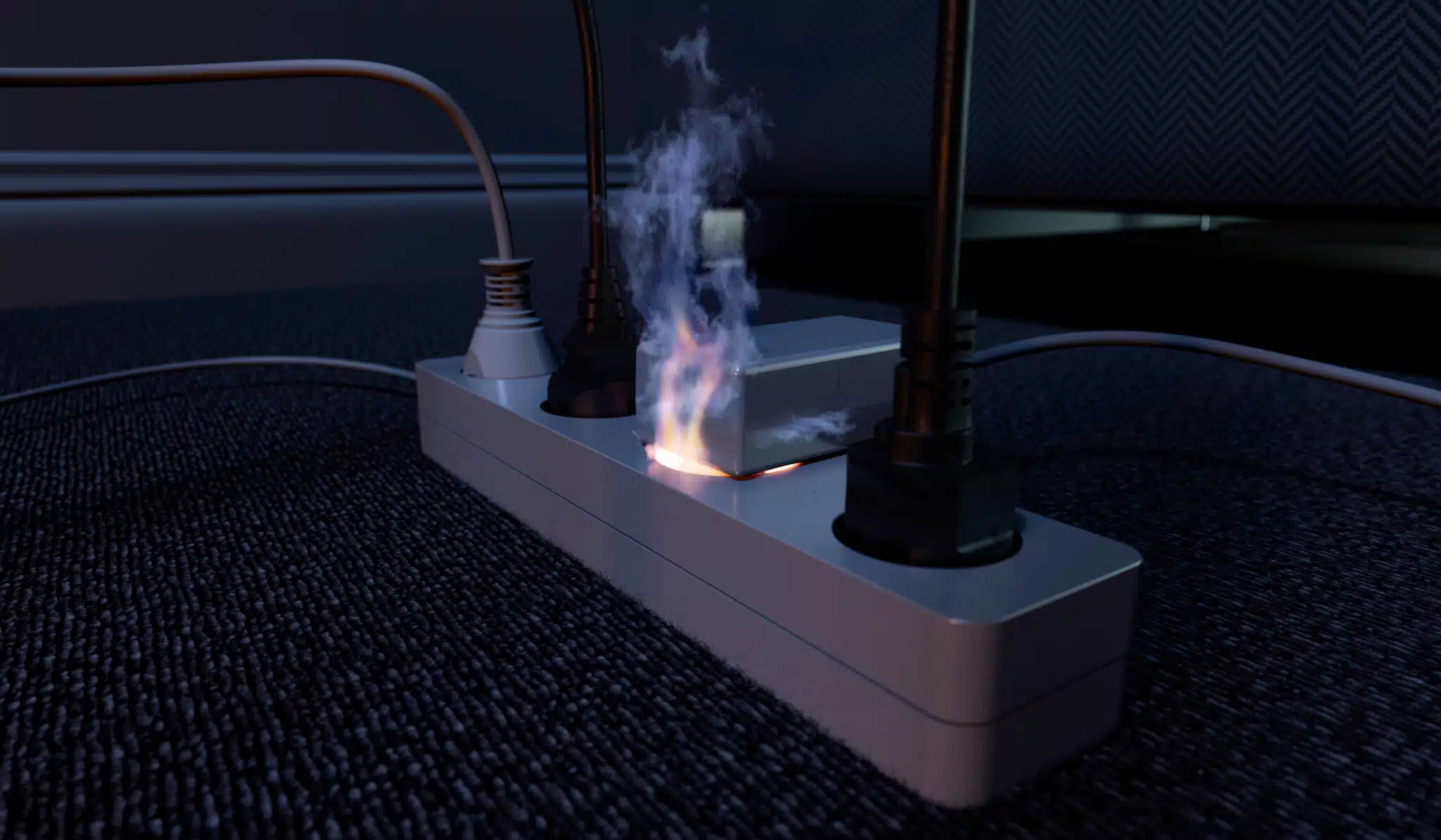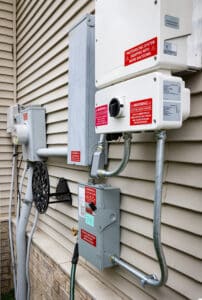When it comes to maintaining a safe and efficient home, understanding the basics of residential electrical diagnostics is crucial. This process involves a thorough examination of your home’s electrical system, identifying any potential issues that could lead to inconvenience or even danger. For homeowners in Lancaster, PA, and the surrounding areas, gaining this knowledge can be the key to preventing electrical mishaps. It’s not just about fixing problems but ensuring your home’s electrical system operates smoothly.
In the realm of home maintenance, residential electrical diagnostics stand out as a vital component. Whether you’re experiencing flickering lights, frequent circuit breaker trips, or suspect outdated wiring, these diagnostics can pinpoint the exact issues. For residents in Harrisburg, PA, this means peace of mind knowing that their electrical systems are in check. It’s a proactive step towards safeguarding your home against electrical failures.
The importance of residential electrical diagnostics cannot be overstated. It’s a first line of defense against potential hazards that can arise from faulty wiring or malfunctioning electrical appliances. By identifying problems early, homeowners can avoid costly repairs or, worse, severe safety risks. This is where expertise from seasoned professionals in Lancaster, PA, comes into play, offering solutions that ensure your home’s electrical system is not just functional but safe.
Lastly, embarking on a journey to understand and implement residential electrical diagnostics in your home is a wise decision. It’s about taking control of your home’s electrical health, ensuring efficiency, and above all, safety. With the right knowledge and support from experts in the field, residents of Harrisburg, PA, and beyond can enjoy the comfort and security of a well-maintained electrical system. This guide aims to equip you with the insights needed to navigate the complexities of residential electrical diagnostics effectively.
Understanding the Basics of Residential Electrical Diagnostics
Understanding the essentials of residential electrical diagnostics is a crucial step for homeowners aiming to maintain a safe and efficient household. This process allows for the early detection of potential issues within the electrical system, preventing minor problems from escalating into major concerns. For individuals in Lancaster, PA, recognizing the signs that indicate the need for an electrical diagnostic can be a game-changer. It ensures that their homes remain safe, functional, and free from electrical hazards.
The journey into residential electrical diagnostics begins with knowing what to look for. Symptoms such as unexplained power outages, buzzing sounds from outlets, or a persistent burning smell are clear indicators that it’s time to call in the experts. Homeowners in Harrisburg, PA, benefit from understanding these warning signs, as it enables them to act swiftly before these issues turn into serious threats. Timely intervention not only safeguards the home but also contributes to the longevity of its electrical infrastructure.
Next, it’s important to choose the right professionals for conducting residential electrical diagnostics. Qualified electricians use specialized tools and their expertise to thoroughly examine your home’s electrical system. They identify not just the obvious issues but also potential problems that might not be immediately apparent to the untrained eye. This comprehensive approach ensures that every component of your home’s electrical system is evaluated and assessed for safety and efficiency.
Finally, implementing the findings from residential electrical diagnostics can significantly enhance your home’s electrical safety and functionality. Whether it’s updating outdated wiring, repairing faulty circuits, or installing surge protectors, each corrective action plays a vital role. These steps not only prevent future electrical mishaps but also optimize the overall performance of your home’s electrical system, making it more reliable and safe for everyday use.

Common Electrical Problems in Homes
Residential electrical diagnostics play a crucial role in identifying common electrical problems in homes, ensuring the safety and functionality of your electrical system. One frequent issue that homeowners encounter is overloaded circuits, a condition where too many devices draw power simultaneously, leading to tripped breakers or even electrical fires. In Lancaster, PA, recognizing and addressing this problem early can prevent damage and maintain a safe living environment. Expert electricians can assess your system’s capacity and recommend solutions, such as circuit upgrades or the addition of more outlets, to mitigate this risk.
Another prevalent concern is outdated wiring, which can struggle to support modern electrical demands and potentially cause hazards. Homes built over a few decades ago might not have the wiring system equipped to handle the electrical load of numerous appliances and devices used today. In Harrisburg, PA, homeowners facing frequent flickering lights or breaker trips should consider residential electrical diagnostics to check for outdated wiring. Professionals can then upgrade the wiring, ensuring it meets current standards and enhances safety.
Ground Fault Circuit Interrupter (GFCI) outlet failures also pose a significant risk, particularly in areas prone to moisture like bathrooms and kitchens. These outlets are designed to shut off electric power within milliseconds to prevent shock, but when they malfunction, the risk of injury increases. Diagnostics can identify faulty GFCIs, allowing for timely replacements that protect homeowners from electrical shocks. This intervention is vital in maintaining a home’s electrical system’s integrity and the safety of its occupants.
Lastly, issues with the electrical panel, often referred to as the heart of a home’s electrical system, can lead to serious problems if not addressed. An outdated or malfunctioning panel may not only limit the overall efficiency of your electrical system but also pose a fire hazard. Through residential electrical diagnostics, electricians can evaluate the condition of your panel and recommend necessary upgrades or repairs. This ensures that electricity is distributed safely and efficiently throughout your home, safeguarding against potential electrical failures.
Tools and Equipment for Electrical Diagnostics
Embarking on residential electrical diagnostics requires a suite of specialized tools and equipment to ensure accurate and efficient results. Multimeters, for instance, are essential in measuring voltage, current, and resistance, allowing electricians in Lancaster, PA, to pinpoint issues with precision. This tool is indispensable for diagnosing common electrical problems, from identifying overloaded circuits to testing the functionality of GFCI outlets. Its versatility makes it a cornerstone in the toolkit of professionals conducting electrical diagnostics.
Another critical piece of equipment is the circuit breaker finder, which significantly simplifies the process of locating specific circuit breakers in an electrical panel. This tool is particularly useful in homes where circuit labels may be missing or inaccurate, ensuring that electricians can safely work on the correct circuit without risking damage to the electrical system. Homeowners in Harrisburg, PA, benefit from this level of meticulousness, as it minimizes the risk of electrical mishaps during diagnostics and repairs.
Thermal imagers also play a pivotal role in residential electrical diagnostics, offering a non-invasive means to detect issues such as overheating circuits or faulty wiring. By visualizing temperature differences, these devices help electricians identify potential hazards before they escalate into serious problems. This technology is especially beneficial for spotting hidden issues that might not be immediately apparent, ensuring a comprehensive assessment of a home’s electrical health.
Lastly, a clamp meter is invaluable for measuring the current flowing through a conductor without needing to make direct contact. This tool enhances safety for electricians, allowing them to measure high levels of current safely and efficiently. Its application is crucial in diagnosing problems such as electrical leaks or verifying that electrical systems are functioning within safe parameters. Together, these tools and equipment form the backbone of effective residential electrical diagnostics, ensuring homes are safe, functional, and up to code.
Step-by-Step Guide to Conducting Residential Electrical Diagnostics
Conducting residential electrical diagnostics begins with a visual inspection of your home’s electrical system. This initial step allows electricians to spot any obvious signs of wear or damage, such as frayed wires or discolored outlets, indicating potential hazards. In Lancaster, PA, professionals might also assess the age of your electrical system, as older homes often have outdated components that require attention. This process sets the stage for a more detailed examination, ensuring nothing is overlooked.
Next, testing the electrical system’s functionality is crucial. Electricians use specialized tools, like multimeters and circuit breaker finders, to measure voltage, current, and resistance in various parts of your home. This phase helps in identifying issues like short circuits, ground faults, or overloads that might not be visible but can pose significant risks. Homeowners in Harrisburg, PA, benefit from these comprehensive tests, as they ensure all components of the electrical system are working correctly and safely.
After identifying potential issues, electricians then prioritize repairs based on the severity and risk associated with each problem. Critical issues, such as outdated wiring or malfunctioning GFCI outlets, are addressed first to mitigate any immediate danger to your home’s safety. This prioritization ensures that the most significant risks are eliminated quickly, enhancing the overall safety and functionality of your home’s electrical system.
Finally, implementing the recommended repairs and upgrades is the last step in residential electrical diagnostics. Whether it’s replacing faulty wiring, upgrading the electrical panel, or installing new outlets, each action contributes to the safety and efficiency of your home’s electrical system. By following through with these recommendations, homeowners can rest assured that their electrical system is not only compliant with current standards but also capable of meeting their daily needs safely and effectively.
Safety Precautions During Electrical Diagnostics
Ensuring safety during residential electrical diagnostics is paramount for homeowners in Lancaster, PA. Before any work begins, turning off the main power supply is crucial to prevent any electrical accidents. This step protects both the electrician and the home’s occupants from potential hazards. It’s a fundamental precaution that sets the stage for a safe diagnostic process.
Wearing the right protective gear is another essential safety measure during residential electrical diagnostics. Electricians often use gloves and eye protection to safeguard against electric shocks and flying debris. Homeowners should also keep a safe distance and follow any additional safety instructions provided by the professionals. This approach minimizes risks and ensures the diagnostic process proceeds without any injuries.
Using insulated tools is a standard practice among electricians conducting residential electrical diagnostics in Harrisburg, PA. These tools are designed to prevent electrical currents from reaching the user, offering an extra layer of protection. It’s a critical aspect of safety, especially when dealing with potentially live circuits or components during the diagnostic process.
Lastly, clear communication throughout the residential electrical diagnostics process is vital. Electricians should inform homeowners of all actions taken and any areas of concern identified. This transparency helps in understanding the condition of the home’s electrical system and the necessary steps to mitigate any risks. By keeping informed, homeowners can ensure their safety and the long-term integrity of their electrical system.
When to Call a Professional for Electrical Diagnostics
Understanding when to seek professional help for residential electrical diagnostics is crucial for maintaining a safe and efficient home. Homeowners often face electrical issues that are complex and potentially dangerous to resolve without expert knowledge. In Lancaster, PA, recognizing signs such as persistent electrical problems or the installation of new appliances that require updated electrical support is key. These scenarios signal the need for a professional electrician who can ensure your electrical system meets safety and functionality standards.
Attempting to diagnose and fix electrical issues on your own can lead to more significant problems, including the risk of electrical fires or shocks. Professionals in residential electrical diagnostics have the training, tools, and experience to identify and solve problems safely and effectively. They understand the intricacies of home electrical systems and can provide solutions that might not be apparent to the untrained eye. In Harrisburg, PA, homeowners are advised to contact a professional as soon as they notice any unusual electrical behavior to prevent potential hazards.
The benefits of hiring a professional for residential electrical diagnostics go beyond safety. Expert electricians can also enhance the efficiency of your home’s electrical system, potentially lowering energy costs. They can offer advice on energy-saving upgrades and identify any outdated or inefficient components that could be improved. This expertise ensures that your electrical system is not only safe but also optimized for performance and cost-effectiveness.
Lastly, regular professional electrical diagnostics can help extend the lifespan of your home’s electrical system. By identifying and addressing issues early, electricians can prevent minor problems from escalating into major, costly repairs. This proactive approach to maintenance ensures that your home in Lancaster, PA, remains a safe and pleasant environment. It underscores the importance of recognizing when it’s time to call in a professional, ensuring the longevity and reliability of your electrical system.
Tips for Maintaining Your Home’s Electrical System
Maintaining your home’s electrical system requires regular attention to ensure it operates safely and efficiently. One effective method is scheduling annual inspections with a professional specializing in residential electrical diagnostics. These experts can identify and address potential issues before they escalate, offering peace of mind to homeowners in Lancaster, PA. By staying proactive, you can avoid unexpected breakdowns and ensure your home remains a safe environment.
Implementing simple daily practices can also contribute significantly to the health of your electrical system. For instance, unplugging appliances when not in use not only conserves energy but also reduces the strain on your electrical system. In Harrisburg, PA, residents can benefit from adopting energy-saving habits that enhance the longevity of their home’s electrical infrastructure. Such practices, coupled with professional oversight, can lead to substantial improvements in system performance and safety.
Educating yourself about the basics of your home’s electrical system is another crucial step in its maintenance. Understanding how to reset a tripped circuit breaker or test a GFCI outlet can save you time and reduce the risk of electrical mishaps. This knowledge empowers homeowners to act swiftly in emergencies, ensuring the safety of their homes in Lancaster, PA, until professional help arrives. It’s a valuable skill set that complements the expertise provided by electricians.
Lastly, staying informed about the latest electrical safety standards and technologies can help homeowners make informed decisions about upgrades and repairs. Whether it’s installing surge protectors or updating old wiring, these improvements can significantly enhance your home’s electrical system. Residents of Harrisburg, PA, can consult with electricians to understand which innovations best suit their needs, ensuring their homes meet current safety guidelines and operate at peak efficiency.

Innovative Trends in Residential Electrical Diagnostics
In the evolving landscape of residential electrical diagnostics, smart home technologies are making significant strides. Homeowners in Lancaster, PA, now have the option to integrate systems that monitor electrical usage in real-time, identifying inefficiencies and potential hazards automatically. This innovation not only enhances safety but also optimizes energy consumption, leading to cost savings. The ability to diagnose issues remotely represents a leap forward in maintaining home electrical systems efficiently.
Another trend gaining momentum is the use of advanced diagnostic tools that offer greater precision in detecting and resolving electrical issues. Electricians in Harrisburg, PA, are equipped with thermal imaging cameras and advanced circuit analyzers that can pinpoint problems without invasive measures. These tools reduce the time and disruption typically associated with electrical diagnostics, making the process smoother for homeowners. As a result, identifying underlying electrical problems becomes quicker and more accurate, ensuring timely interventions.
The integration of renewable energy sources with home electrical systems is also reshaping residential electrical diagnostics. Solar panels and wind turbines necessitate specialized diagnostic approaches to ensure they are effectively integrated and functioning optimally. Homeowners benefit from diagnostics that consider the unique challenges of renewable energy, ensuring their investments are protected and yield the expected benefits. This trend underscores the importance of adapting diagnostic techniques to evolving energy solutions.
Lastly, the push towards sustainability is driving the development of eco-friendly diagnostic practices and solutions. Electricians are increasingly using non-toxic materials and methods that minimize environmental impact while conducting diagnostics and repairs. This approach not only aligns with the broader goals of sustainability but also appeals to homeowners in Lancaster, PA, who prioritize eco-conscious living. By embracing these innovative trends, residential electrical diagnostics are becoming more effective, efficient, and aligned with contemporary values.
Frequently Asked Questions
What is electrical diagnostics?
Electrical diagnostics involve checking your home’s electrical system to find any issues. This process helps in identifying problems like faulty wiring or overloaded circuits. By using specialized tools, experts can ensure your electrical system runs safely and efficiently. It’s a crucial step in maintaining your home’s electrical health and safety.
How often should I perform Residential Electrical Diagnostics?
Experts recommend having residential electrical diagnostics done at least once every year. This ensures your home’s electrical system remains in top condition. Regular checks can catch problems early, preventing costly repairs later. Keeping up with these diagnostics is key to a safe and efficient home.
What tools are needed for electrical repairs?
For electrical repairs, a variety of tools are essential. Multimeters measure voltage, resistance, and current, helping to pinpoint issues accurately. Wire strippers and screwdrivers are vital for safely adjusting connections and components. Lastly, voltage testers confirm power is off before work begins, ensuring safety during repairs. These tools, among others, support effective residential electrical diagnostics and repair efforts.
Can I DIY Residential Electrical Diagnostics?
While you can attempt basic residential electrical diagnostics, it’s best to proceed with caution. Lack of expertise can lead to misdiagnosis or even danger. Professionals have the right tools and knowledge for accurate and safe assessments. For complex issues, always consult a licensed electrician to ensure your home’s electrical safety.
What are common electrical problems in homes?
Common electrical problems in homes include frequent circuit breaker trips, indicating an overloaded system. Many also face issues with flickering lights, often due to loose connections. Outdated wiring struggles to handle modern appliances, leading to potential safety risks. Lastly, faulty outlets and switches can signify deeper electrical system problems, requiring professional attention.






